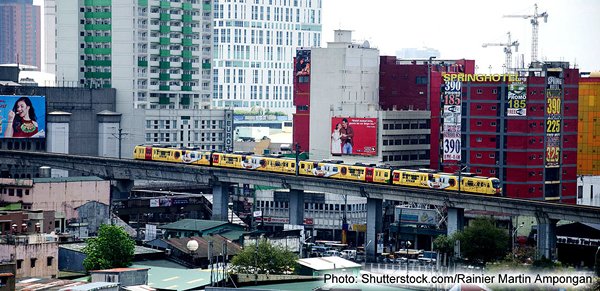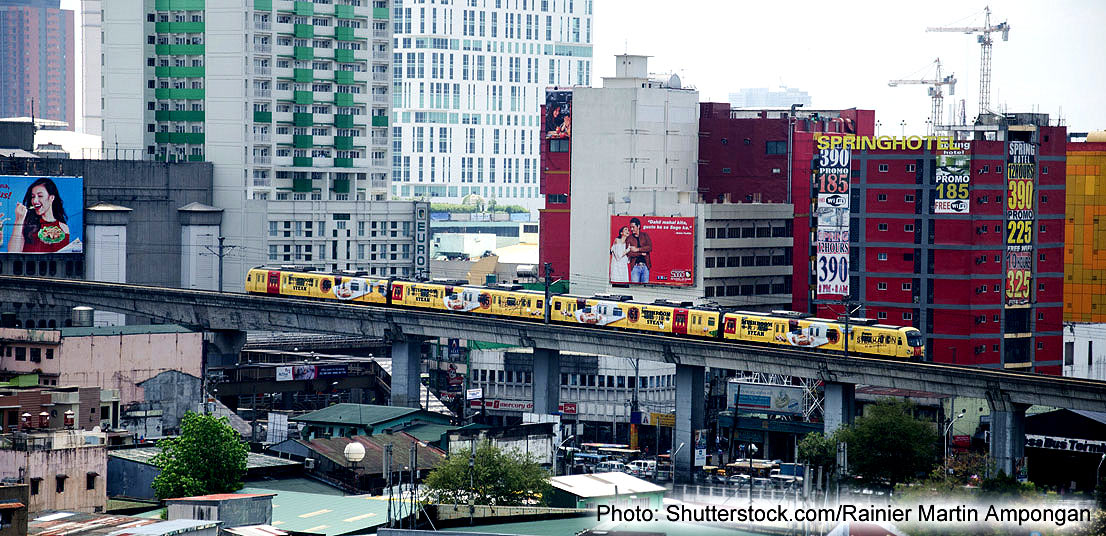Philippines
The experience, comprehensive construction and technical know-how accumulated in Hong Kong is key to tapping into Belt and Road opportunities, according to Dominic Pang, Chairman of Asia Allied Infrastructure Holdings Limited (AAIH), whose company has recently secured a major water-supply infrastructure contract in the Philippines.
Having participated in a number of large-scale integrated construction projects in Hong Kong, including the Central-Wan Chai Bypass project, MTR Guangzhou-Shenzhen-Hong Kong Express Rail Link (Hong Kong Section) and Happy Valley Underground Stormwater Storage Scheme, AAIH accumulated extensive experience in the construction sector enabling it to expand business to the Belt and Road countries.
“The Philippines is a starting point to explore other Belt and Road-related construction opportunities around the region. Through this project, we hope to expand our business in the Philippines and find relevant partners. Technology transfer will help the local partners develop and list in Hong Kong, bringing project and investment returns to AAIH,” said Pang, who believed that construction projects, however they are tied to the Belt and Road Initiative, provides the Hong Kong construction industry with an opportunity to export its hard-earned reputation for managing and constructing world-class infrastructure projects. “As more Belt and Road projects are announced, we should be looking at ways to export our Hong Kong premium brand of construction and engineering capabilities and skills of handling complex projects to other regions,” said Pang.
With two independent thirdparty construction contractors, AAIH has entered into a contract with Manila Water Company, Inc to design and construct the Novaliches-Balara Aqueduct 4, water conveying facilities. Due for completion in 2021, the 5.4 billion-Peso (approximately HK$800 million) project will improve the long-term water supply services between Novaliches and Balara in Quezon City, the most populated city in the Metro Manila area. One of the two contractors also worked with AAIH previously on the Sha Tin-Central Rail Link project, constructing the tunnel between the Kai Tak and Diamond Hill MTR Stations.
In addition to the Novaliches-Balara Aqueduct 4 project, Pang said AAIH is exploring collaborative relationships with construction firms in Malaysia, the Philippines and Vietnam. “Other than project management, we are looking at ways to set up material and equipment sourcing collaborations to provide benefits along the construction supply chain,” said Pang. He said establishing connections with local stakeholders and introducing best construction project management practices is a good example of the Belt and Road ethos of promoting cooperation, mutual learning and mutual benefits.
Stephen Lee, Chief Executive Officer of Chun Wo Construction Holdings Limited, said it is noteworthy the Novaliches-Balara Aqueduct 4 project, which features a 7km long and nearly 4m diameter tunnel, will be the first tunnel in the Metro Manila area to be constructed using a tunnel boring machine (TBM). Used as an alternative to drilling and blasting methods, the use of TBMs requires expert planning and operating processes. “Our project management team has worked on challenging tunnelling projects in Hong Kong and will apply their skills and experience on the Philippines tunnelling project,” Lee said. Ahead of the commencement of tunnelling work, currently, geotechnical inspection work is being conducted to evaluate soil conditions and groundwater conditions.
With a wealth of experience in the construction industry, Edward Yeung, Assistant to the Chief Executive Officer of AAIH said by working with Philippine sub-contractors and employing local labour, AAIH can introduce the latest construction techniques and help fast track up-skilling. “The Philippines may lag behind the sophistication of Hong Kong's construction industry, but there is a lot of enthusiasm and commitment to improve,” noted Yeung. Dubbed by the government as the “golden age of infrastructure”, the Philippines has launched a major public spending programme focused on the construction of new roads, bridges, railways, and airports costing some US$167 billion. “As a company that possess extensive experience in project management and construction, AAIH is looking forward to sharing our expertise with suitable partners,” said Yeung.



Blackpanda, a Hong Kong special risks consultancy, draws on the image of the panda to show its community development credentials. But it also aims to show “risk” as an important aspect of the Belt and Road Initiative, with cyber security a major challenge, says CEO Gene Yu. Hong Kong’s connector role is all-important to clients as the firm opens markets in Southeast Asia.
Speaker:
Gene Yu, Co-founder, CEO, Blackpanda
Related Links:
Hong Kong Trade Development Council
http://www.hktdc.com
HKTDC Belt and Road Portal
http://beltandroad.hktdc.com/en/



Hong Kong-based special risks consultancy firm Blackpanda has developed methods to reduce concerns to investors and project developers under the Belt and Road Initiative. Specialising in physical security, intelligence, community relations, cyber security and insurance, the firm has done military-style exercises to measure risks and CEO Gene Yu says Hong Kong’s safe environment and financial stature are matched by its alignment with the Belt and Road.
Speaker:
Gene Yu, Co-founder and CEO, Blackpanda
Related Links:
Hong Kong Trade Development Council
http://www.hktdc.com
HKTDC Belt and Road Portal
http://beltandroad.hktdc.com/en/



Thawing China-Philippines relations sees Beijing sign up as backer for country's ambitious infrastructure makeover.

A proposed 610km railway line – linking Manila, the Philippine capital, to Matnog, a town to the south of the country and the site of a new 50-hectare eco-city – is set to be the latest beneficiary of Belt and Road Initiative (BRI) investment. Following detailed negotiations during last November's ASEAN summit in Manila, the final loan agreement is expected to be ratified early this year, almost exactly 12 months from the date that initial discussions began.
The origins of the scheme, formally known as the Philippine National Railways (PNR) South Long Haul Project, date back to 2015, when it was first mooted by the Bicol Regional Development Council, the trans-provincial body responsible for the region's economic regeneration. It was subsequently adopted as one of the flagship projects of the Build, Build, Build initiative, the massive infrastructure development programme initiated by Rodrigo Duterte, the Philippine's controversial President. It is believed that Duterte is committed to seeing the project completed before the end of his term in office in the summer of 2022.
Once completed, the massive P151 billion (US$3.01 billion) rail initiative will run south from Manila to Matnog, connecting the provinces of Sorsogon, Laguna, Batangas, Quezon, Camarines Sur and Albay along the way, as well as a number of international seaports and Special Economic Zones. It is also envisaged that it will vastly improve connectivity between Southern Luzon's urban centres and several regional growth hubs, ultimately enhancing productivity in the industrial, services and agricultural sectors.
As an added bonus, it is also expected to boost tourism within the Bicol region by as much as 30%, while carrying up to 400,000 passengers in its first year of operation. In total, it will cut the transit time between Manila and Bicol from 11 hours to just six.
The huge cost of the project is largely down to the need to replace the legacy PNR track with, in the first instance, a single-track at-grade (at the same level) rail system. According to the country's Department of Transportation, in addition to the costs of replacing the track, the project's budget will also extend to the provision of new carriages/engines and a number of other supplementary requirements. On top of the Chinese investment, between P800 million and P7 billion of funding has been allocated to the project from the Philippine government's 2016 and 2017 budgets, with a further P3 billion expected to be diverted from the 2018 public spending round.
In addition to the South Long Haul project, the Philippines' government has also approved two other major rail projects over the past 12 months – the P358 billion Metro Manila Subway and the P134 billion PNR-South Commuter Line. It is envisaged that, ultimately, these three projects will segue into one integrated commuter rail system.
Overall, the confirmation of the mainland funding is seen as yet another sign that relations between China and the Philippines are continuing to thaw. A consequence of this improved diplomatic relationship is that Duterte can now rely on BRI funding to help bankroll many of his administration's priority economic redevelopment and job-creation initiatives, which have been costed at about US$167 billion. To date, China has pledged US$24 billion in order to help realise these proposals.
Marilyn Balcita, Special Correspondent, Manila
 1597 Views
1597 Views
